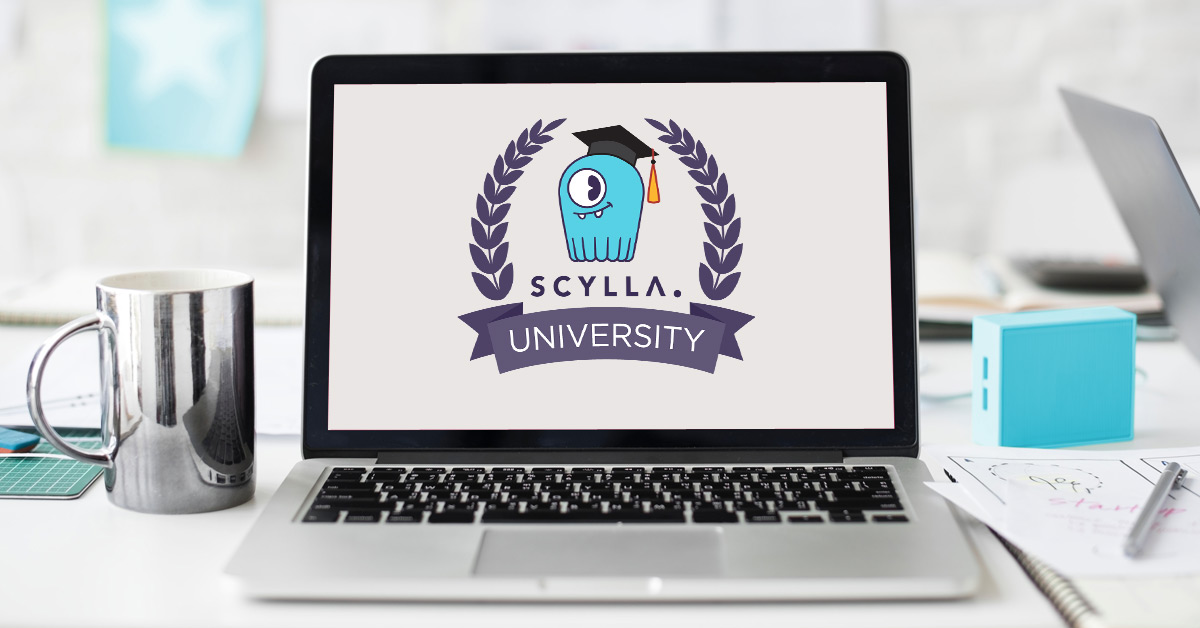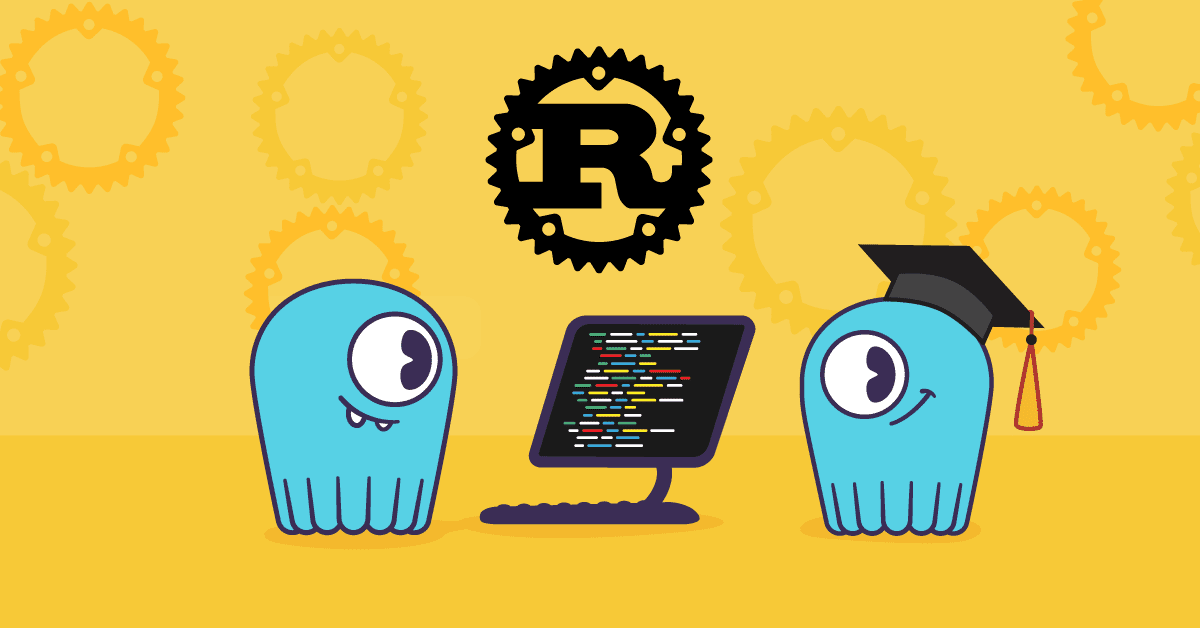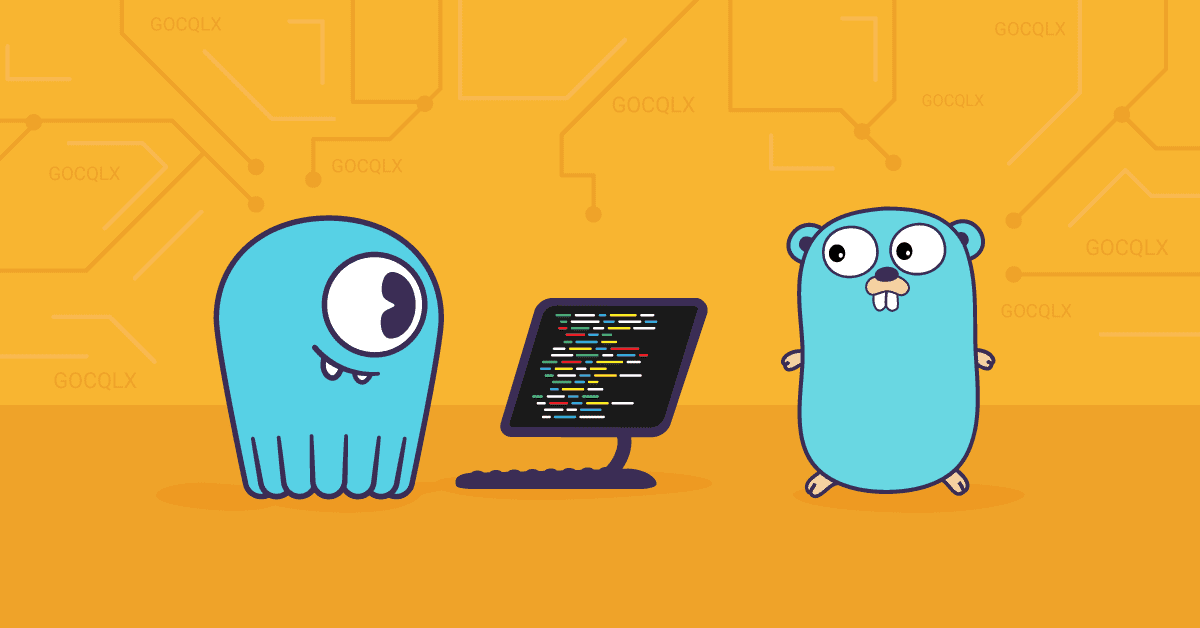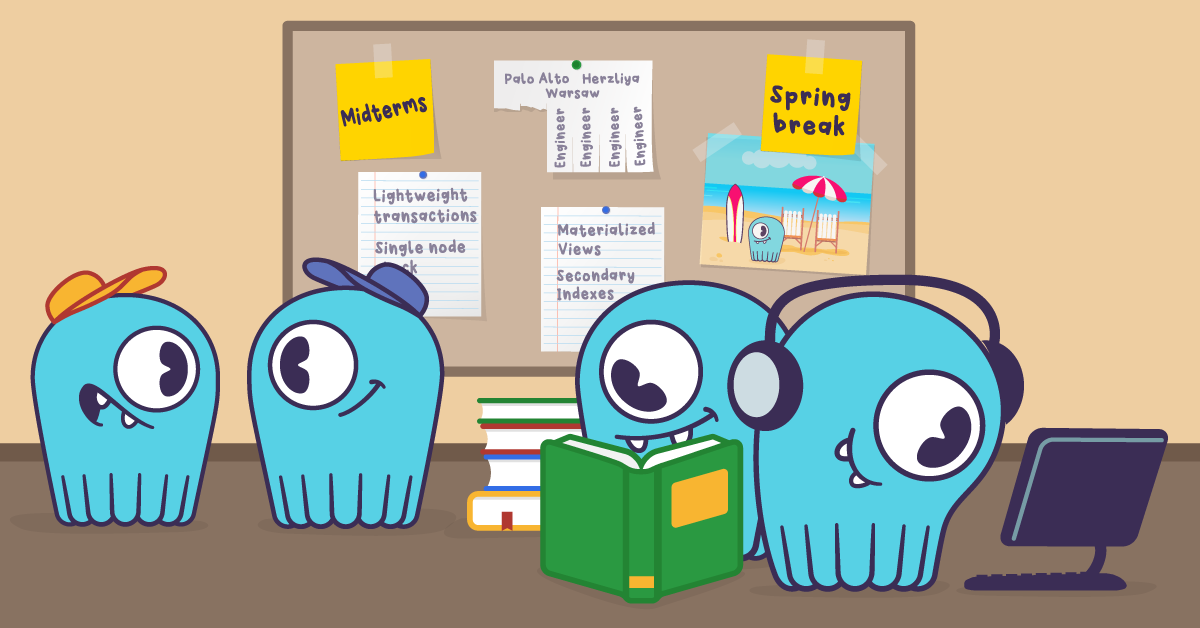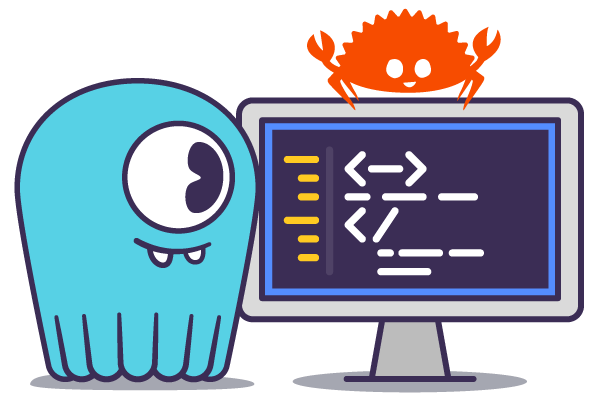
2020 has been a busy year so far at ScyllaDB University. We published lots of new content to help you improve your ScyllaDB and NoSQL skills. Here is an overview of the new content.
Language Lessons
People are passionate about their preferred programming languages, so ScyllaDB University strives to provide content tailored to many predominant programming languages; Rust, Go, Python, Node.js, and C++.
- Rust and ScyllaDB lesson: Build a simple Rust application that connects to a ScyllaDB cluster and performs basic queries. For establishing communication between our application and the ScyllaDB server, you’ll use CDRS, which is an open-source ScyllaDB driver for Rust.
- Golang and ScyllaDB Part 1: In this lesson, you’ll see how to use GoCQL, a ScyllaDB client for the GO language, to interact with a ScyllaDB cluster. Go is an open-source programming language designed at Google in 2007. It’s syntactically similar to C but with garbage collection, structural typing, memory safety, and communicating sequential processes style concurrency.
- Golang lesson Part 2: the lesson walks you through an example of how to store images in ScyllaDB using Golang.
- Using GoCQLX to interact with a ScyllaDB cluster: the lesson, introduces the GoCQLX package and uses a hands-on example to show how it works in practice. GoCQLX is an extension to the GoCQL driver. It improves developer productivity while not sacrificing any performance.
- Coding with Python Part 1: In this lesson, you’ll see how to connect to a ScyllaDB cluster using the driver for Python with an example application.
- Coding with Python Part 2: Prepared Statements: learn how to use Prepared Statements in your Python applications to improve performance.
- Coding with Python Part 3 – Data Types: learn how to store binary files in ScyllaDB with a simple Python application.
- Node.js lesson: learn how to connect to a ScyllaDB cluster using the Node.js driver
- CPP lesson: the lesson covers the C++ driver, which is compatible with both ScyllaDB and Cassandra. It goes over an example of how to use it to connect to a ScyllaDB cluster and perform basic operations.
Operations and Management
Regardless of the programming language you use, these provide both the fundamentals and advanced deep dives that will allow you to get the most out of ScyllaDB. We also introduce you to a whole new way to connect to ScyllaDB, using our new DynamoDB-compatible API.
- Operations course: designed with Administrators and Architects in mind.
By the end of this course, you’ll gain a deep understanding of building, administering, and monitoring ScyllaDB clusters, as well as how to troubleshoot ScyllaDB. - Data Modeling course: this course explains basic and advanced data modeling techniques including application workflow, query analysis, denormalization, and other NoSQL data modeling topics while showing some concrete hands-on examples of how to do it.
- Monitoring and Manager lab: you’ll learn how to start ScyllaDB Manager and connect it to a ScyllaDB cluster and set up ScyllaDB Monitoring, using a hands-on example. The lesson is compatible with Manager 2.0.
- DynamoDB API Compatibility – Project Alternator Basics: get started with ScyllaDB Alternator, an open-source project that gives ScyllaDB compatibility with DynamoDB. The lesson introduces the project. Afterward, it goes over a hands-on example of creating a one node ScyllaDB cluster and performing some basic operations on it.
- Expiring Data with TTL lesson: Time to Live (TTL) is a ScyllaDB (and Apache Cassandra) feature that is often used but not always fully understood. ScyllaDB provides the functionality to automatically delete expired data according to TTL. It can be set when defining a Table, or when using the INSERT and UPDATE queries The lesson covers different use cases for using TTL with some hands-on examples you can try out yourself.
- Compaction lesson: This lesson starts by giving an overview of the compaction process and how it works. It then goes on to cover the different compactions strategies: Size Tiered Compaction Strategy (STCS), Leveled Compaction Strategy (LCS), Time-Window Compaction Strategy (TWCS), and Incremental Compaction Strategy (ICS) and when to use each of them.
If you haven’t tried out ScyllaDB University yet, just register as a user and start learning. All the material is available for free. Courses are completely online, self-paced, and include practical examples, quizzes, and hands-on labs.
University Dean’s List Awards
Out of the hundreds of active users a month using ScyllaDB University, the three top users were:
- Felipe Santos, Dynasty Sports & Entertainment, “ScyllaDB University is a great place to start if you are not familiar with NoSQL databases and planning to switch your current relational database to a very robust NoSQL solution.
Moreover, its content helped me a lot on my first steps delving into NoSQL world and gave me many insights of how that would affect our product’s design.”
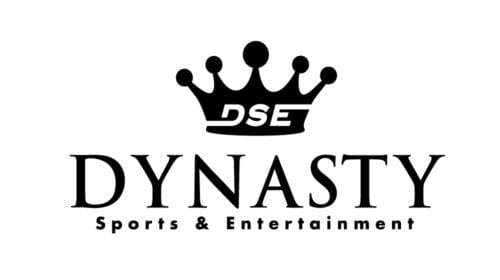
- Tho Vo, Weatherford, “The courses are very well laid-out, easy to follow. Top grade materials.”

- Vinicius Neves, “ScyllaDB’s performance is fantastic! We achieved great results by implementing it in our streaming stream. ScyllaDB University attracted our collaborators for its easy and intuitive language!”

Cool ScyllaDB T-shirts are on their way to you.
A reminder, points are awarded for:
- Completing lessons including quizzes and hands-on labs, with a high score
- Submitting a feedback form, for example, this one.
- General suggestions, feedback, and input (just shoot me a message on the #scylla-university channel on Slack)
Get Certified
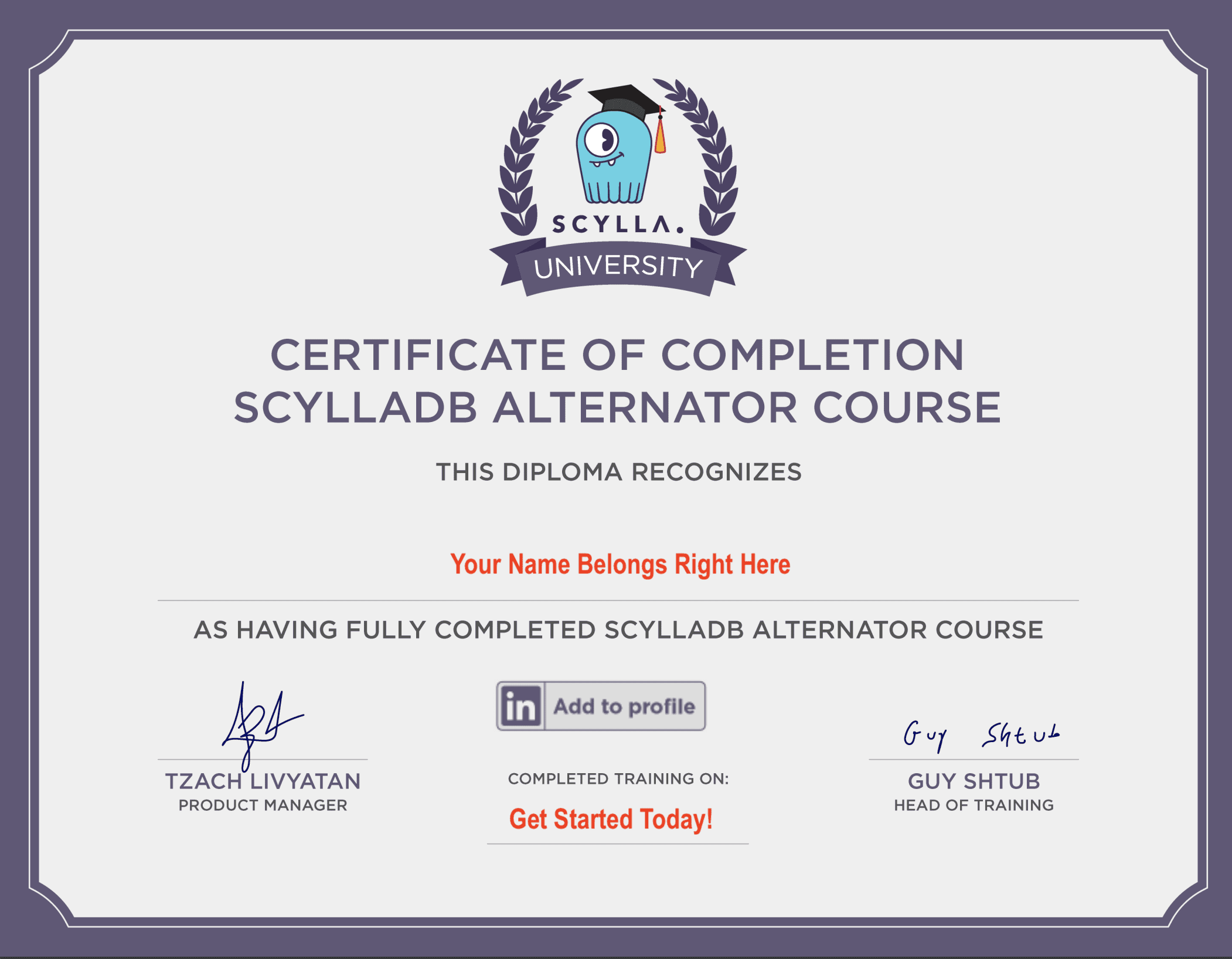
For each course you complete, you get a complimentary certificate. Doing the training helps you gain knowledge for your latest project or for your next role. Gain credibility as a ScyllaDB and NoSQL expert, by sharing your certificates on your LinkedIn profile and show off your achievements.
To see your certificates go to your profile page.
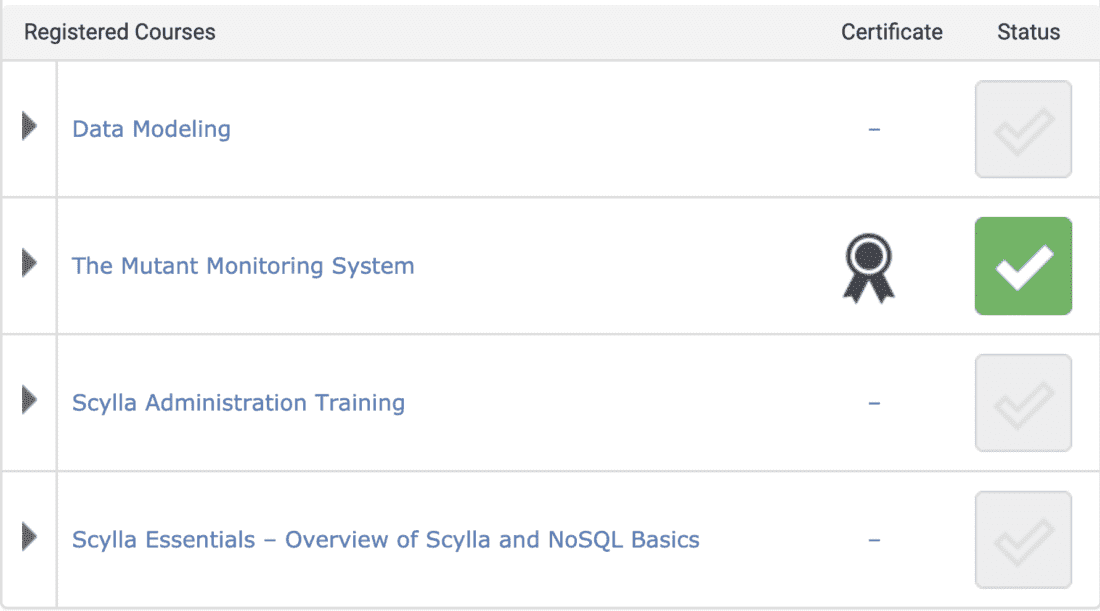
Check out more courses and join the #scylla-university channel on Slack for more training related discussions.



